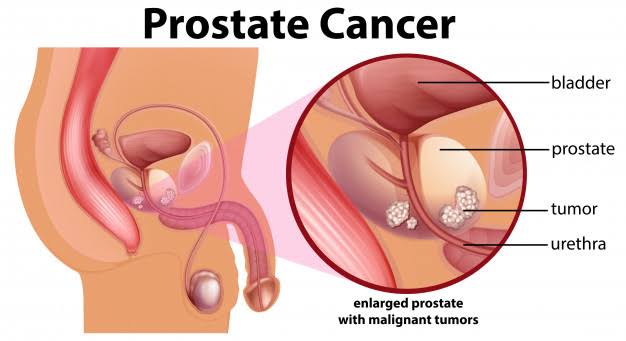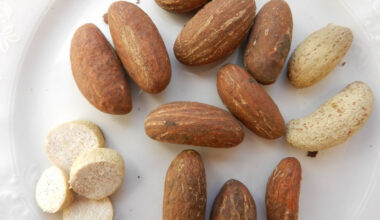As a writer, I have come across numerous individuals who are seeking information on how to shrink an enlarged prostate and prevent prostate cancer. In this article, I aim to provide a comprehensive guide to understanding the prostate gland, the causes, and symptoms of an enlarged prostate, natural remedies, diet and lifestyle changes, exercises, prevention tips for prostate cancer, screening and early detection, treatment options, as well as support and resources for prostate health. By the end of this article, you will have a thorough understanding of how to take charge of your prostate health and reduce the risk of developing prostate cancer.
Understanding the Prostate Gland
The prostate gland is a crucial part of the male reproductive system, responsible for producing a fluid that nourishes and protects sperm. Located just below the bladder and in front of the rectum, the prostate surrounds the urethra, the tube that carries urine from the bladder. As men age, the prostate gland naturally undergoes growth, which can lead to various health concerns. Understanding the normal function and structure of the prostate gland is essential in addressing issues related to prostate health.
It’s important to note that the size of the prostate can fluctuate throughout a man’s life. During puberty, the prostate gland experiences significant growth, reaching its average adult size by the early 20s. However, as men reach their 40s and beyond, the prostate may undergo further enlargement, leading to potential health complications. By gaining a deeper understanding of the prostate gland’s role in the male body, individuals can make informed decisions about managing their prostate health.
Causes and Symptoms of Enlarged Prostate
An enlarged prostate, also known as benign prostatic hyperplasia (BPH), is a common condition among aging men. Several factors contribute to the development of an enlarged prostate, including hormonal imbalances, cell growth, and inflammation. As the prostate enlarges, it can exert pressure on the urethra, leading to urinary symptoms such as frequent or urgent urination, weak urine flow, difficulty initiating urination, and incomplete emptying of the bladder. Understanding the causes and symptoms of an enlarged prostate is crucial for early intervention and effective management.
It’s important to recognize that the symptoms of an enlarged prostate can significantly impact an individual’s quality of life. Men experiencing urinary difficulties or discomfort should seek medical evaluation to determine the underlying cause of their symptoms. Additionally, identifying the causes of an enlarged prostate can help individuals make informed decisions about their treatment options, lifestyle modifications, and preventive measures.
Natural Remedies for Shrinking an Enlarged Prostate
In addressing an enlarged prostate, many individuals seek natural remedies as part of their treatment plan. Several natural approaches have shown promise in reducing the symptoms associated with an enlarged prostate. Saw palmetto, a plant-based supplement, has been widely studied for its potential to alleviate urinary symptoms related to BPH. Additionally, beta-sitosterol, derived from plant sources, has demonstrated positive effects on urinary flow and overall prostate health. These natural remedies serve as valuable alternatives for individuals seeking non-invasive options to manage their prostate health.
Moreover, incorporating certain herbs and botanical extracts into one’s regimen may provide additional support for prostate health. These include pygeum, stinging nettle root, and rye grass pollen extract, which have been traditionally used to address urinary symptoms associated with an enlarged prostate. By exploring natural remedies, individuals can take proactive steps towards shrinking an enlarged prostate and improving their overall well-being.
Diet and Lifestyle Changes to Support Prostate Health
The significance of diet and lifestyle modifications in promoting prostate health cannot be overstated. A balanced and nutritious diet rich in fruits, vegetables, whole grains, and healthy fats can contribute to overall well-being and may have a positive impact on prostate health. Consuming foods high in antioxidants, such as berries, spinach, and nuts, can help combat inflammation and oxidative stress, which are associated with prostate issues.
Furthermore, maintaining a healthy weight and staying physically active are essential components of a prostate-friendly lifestyle. Regular exercise, particularly activities that promote cardiovascular health, can benefit prostate function and reduce the risk of developing prostate-related complications. By adopting a proactive approach to nutrition and lifestyle, individuals can create an environment that supports their prostate health and overall vitality.
Exercises for Prostate Health
Engaging in specific exercises tailored to support prostate health is an effective way to promote overall well-being. Kegel exercises, which involve contracting and relaxing the pelvic floor muscles, can enhance urinary control and alleviate symptoms of an enlarged prostate. Additionally, aerobic exercises such as brisk walking, swimming, and cycling can contribute to improved circulation and prostate function.
Moreover, practicing stress-reducing activities such as yoga, meditation, and deep breathing exercises can have a positive impact on prostate health. Stress management is integral to maintaining overall wellness, as chronic stress can exacerbate symptoms associated with an enlarged prostate. By incorporating targeted exercises into one’s routine, individuals can actively contribute to the health and functionality of their prostate gland.
Prevention Tips for Prostate Cancer

Prostate cancer is a serious health concern that affects a significant number of men worldwide. While certain risk factors for prostate cancer, such as age and family history, are beyond an individual’s control, there are proactive measures that can be taken to reduce the risk of developing this disease. Regular screenings, discussions with healthcare providers, and adherence to a healthy lifestyle are key components of prostate cancer prevention.
In addition to seeking routine screenings, individuals can reduce their risk of prostate cancer by making informed choices about their dietary habits and environmental exposures. Limiting the consumption of red and processed meats, maintaining a diet high in plant-based foods, and avoiding exposure to harmful chemicals and toxins can contribute to a lower risk of developing prostate cancer. By incorporating prevention tips into their daily lives, individuals can take proactive steps towards safeguarding their prostate health.
Screening and Early Detection for Prostate Cancer
Early detection of prostate cancer is paramount in ensuring timely intervention and effective treatment. Screening for prostate cancer typically involves a combination of a digital rectal exam (DRE) and a prostate-specific antigen (PSA) test. These screening methods enable healthcare providers to assess the condition of the prostate gland and identify potential abnormalities that warrant further evaluation.
It’s important for men to engage in open and proactive discussions with their healthcare providers about the benefits and considerations of prostate cancer screening. By understanding the screening process and its implications, individuals can make informed decisions about their prostate health and overall well-being. Early detection through regular screenings can significantly impact the prognosis and treatment outcomes for prostate cancer.
Treatment Options for Prostate Cancer
In the event of a prostate cancer diagnosis, individuals are presented with various treatment options, each with its own considerations and potential outcomes. The selection of a treatment approach is influenced by factors such as the stage of the cancer, the individual’s overall health, and their personal preferences. Treatment modalities for prostate cancer may include active surveillance, surgery, radiation therapy, hormone therapy, chemotherapy, or immunotherapy.
It’s essential for individuals diagnosed with prostate cancer to engage in comprehensive discussions with their healthcare team to explore the available treatment options and make informed decisions. Additionally, seeking support from loved ones, support groups, and healthcare professionals can provide individuals with the necessary resources to navigate the complexities of prostate cancer treatment. By understanding the available treatment modalities, individuals can approach their prostate cancer journey with confidence and clarity.
Support and Resources for Prostate Health
Navigating the landscape of prostate health and prostate cancer can be a daunting experience for individuals and their loved ones. Accessing support and resources tailored to prostate health can significantly impact the well-being and quality of life of those affected by prostate-related conditions. Support groups, educational materials, online forums, and advocacy organizations offer valuable information, guidance, and a sense of community for individuals navigating prostate health challenges.
Furthermore, seeking the expertise of healthcare professionals, including urologists, oncologists, and nutritionists, can provide individuals with personalized care and evidence-based recommendations. By availing themselves of the available support and resources, individuals can empower themselves to make informed decisions and take proactive steps toward managing their prostate health.
Conclusion
In conclusion, the journey towards shrinking an enlarged prostate and preventing prostate cancer encompasses a multifaceted approach that encompasses understanding the prostate gland, addressing an enlarged prostate through natural remedies and lifestyle modifications, and taking proactive steps towards prostate cancer prevention and early detection. By equipping themselves with knowledge, engaging in proactive discussions with healthcare providers, and making informed decisions about their health, individuals can navigate the complexities of prostate health with confidence and resilience. It is my hope that this comprehensive guide serves as a valuable resource for individuals seeking to prioritize their prostate health and well-being.






